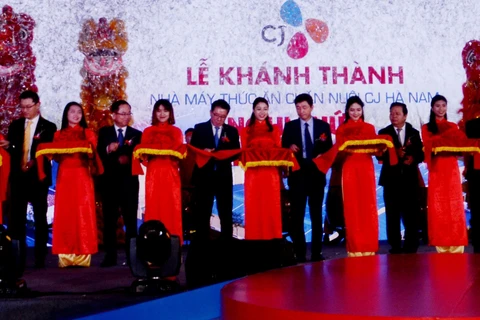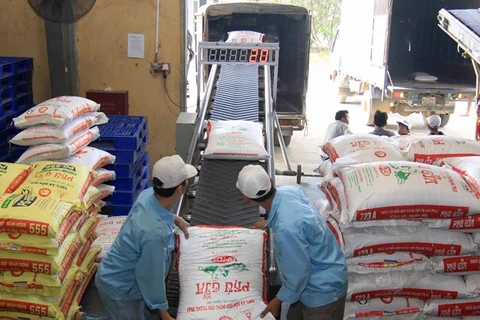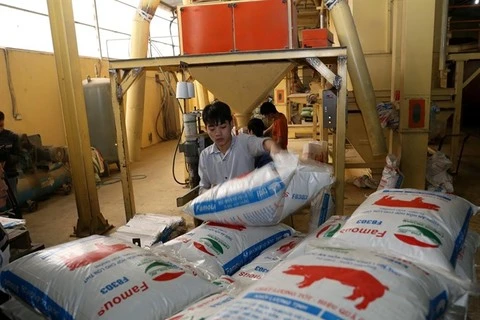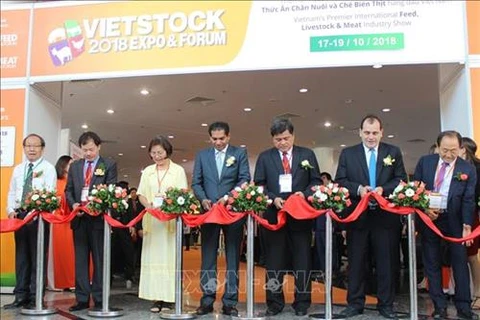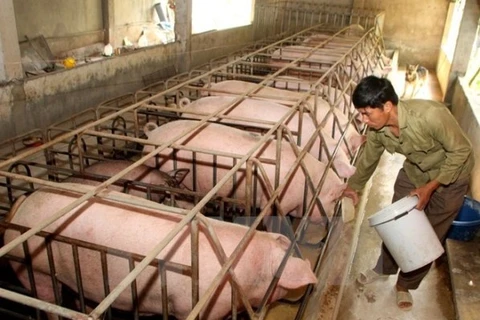HCM City (VNS/VNA) - The animal feed industry, which is growing at 10-15 percent annually, is highly attractive to foreign investors, who are steadily expanding their production.
US-owned Cargill last week opened a 28 million USD plant in Binh Duong province that can produce 240,000 tonnes of poultry and swine feed annually.
Cargill is one of the five biggest players in the sector with 12 facilities across the country with a total capacity of 1.8 million tonnes a year.
Last month, the Republic of Korea’s CJ Group opened its sixth feed production plant in the central province of Binh Thuan at a cost of 13.6 million USD and capacity of 72,000 tonnes per year.
In June, Mavin Group had opened its fifth plant in Dong Thap province, the largest and most advanced in the Cuu Long (Mekong Delta). It has an annual capacity of over 400,000 tonnes and cost 30 million USD.
Nguyen Xuan Duong, general director of the Ministry of Agriculture and Rural Development’s Department of Livestock Production, said the feed industry had sustained double-digit growth for the past 20 years, with output rising from 4.3 million to 21 million tonnes in the period to make Vietnam the largest producer in Southeast Asia.
According to the ministry, though Vietnamese producers outnumber their foreign peers, they only have a market share of 35 percent.
The industry requires high technology and is capital-intensive, areas in which local producers are often weak.
Le Ba Lich, Chairman of the Animal Husbandry Association of Vietnam, said foreign firms had deeper pockets, experience, modern production lines, and methodical strategies to penetrate the market and expand.
According to the ministry, demand feed by 2020 will be around 25 million tonnes.
Animal protein consumption has been increasing in Vietnam and the trend is expected to continue in line with the country’s rapid economic growth and regional trends, research by the Economics Intelligence Unit has shown.
After recovering from the turbulence caused by huge pork oversupply in the last two years, the feed market is expected to grow at around 3 percent annually.
Duong said the livestock sector had enjoyed average growth of 5-6 percent a year for the past two decades.
Meat production had tripled since 2005 (from 1.6 million to 5.3 million tonnes), egg production had gone up 3.9 times (from 3 billion to 11.8 billion) and milk output had increased 18.6-fold (from 51.5 thousand tones to 960 thousand tonnes), he said.
“For the first time in our history, Vietnam exported chicken to Japan in 2017 and this year marks the beginning of Vietnamese pork exports to Myanmar.
“Though the export value is not high yet, these events have greatly improved Vietnam’s commercial reputation. These milestones are good proof of the efficiency of authorities, capabilities of the livestock enterprises and the quality and safety of Vietnamese livestock products, which will make their way further into developed markets.
“Vietnam’s livestock industry has overcome challenges faced by the pig farming sector which began in 2017. What we are seeing today is very encouraging: high pork prices, businesses and farmers are getting ready to invest again in expanding the swine population, increasing production capacity and improving quality to meet local demand and even for exports.”-VNS/VNA
VNA

